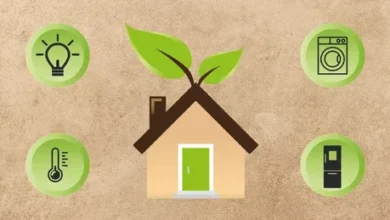How Relationship Counselling in Melbourne Can Help You Reconnect With Your Partner

Arguments are the most common cause of cracks in relationships. But sometimes, it’s the silence that makes it miserable.
The change in tone, the lack of interest in what once mattered. Slowly, you go from being close to just co-existing. And the worst part is that you don’t even know when the shift started.
This blog won’t be your usual relationship advice. It’s for couples who feel distant. They feel stuck or unsure about how to reconnect, but they are still hoping that something can be done.
Why do couples drift even without big conflicts?
Many couples reach a counsellor after a decent shouting match. But many couples who come to counselling haven’t had any major breakdown. They didn’t cheat, there’s no betrayal, but they feel lost. Emotionally disconnected. It feels like living with a stranger under the same roof.
This kind of slow emotional drift is harder to spot. Because it doesn’t show up in dramatic ways, it shows up when you stop sharing small wins. When you talk less, you’d rather scroll through your phone than ask each other how the day went.
Counselling helps catch these shifts before they go too far.
What counselling fixes beneath the surface
Any counselling starts with communication, but the real work goes deeper. Melbourne counselling and relationship counselling professionals will help you discover that poor communication often hides unspoken tension.
Maybe one person feels unheard. Maybe the other is burnt out from carrying more than their share. And talking better will not solve this problem. Counselling brings these unspoken patterns to the surface. Things like:
- Avoidance when hurt
- Passive control through silence
- Pressure to meet unspoken expectations
- Giving to get something back
Once those patterns are named, they lose some of their power. That’s where change begins.
Recognising the loop of mismatched needs
One partner keeps doing what they think is loving. The act of service, physical closeness, working harder, and opening doors. But the other person does not feel loved at all.
They need something different.
This mismatch creates a painful loop. You try, they don’t respond, you pull back. They feel abandoned; they shut down. And the cycle continues.
Melbourne relationship counsellors focus on spotting this loop early. A good therapist helps couples translate each other’s emotional language. Not everyone expresses love or stress the same way.
When both people finally understand what the other is really asking for (even when they don’t say it clearly), things start to change.
Relearning how to respond instead of react
Arguments follow a script. For example, something small happens, and one person snaps. The other will get defensive. Words will fly, and the walls go up. Ultimately, nothing is truly resolved.
Counselling teaches couples how to pause that script. How to respond instead of reacting on autopilot. This doesn’t mean you’ve to learn to say the right things, you’ve to learn to recognise your own triggers and choose a different path in the moment.
Emotions check-ins, short breaks during conflict, and repair attempts are some helpful tools for this practice.
Rebuilding intimacy without relying on physical closeness
Many people assume that resolving physical intimacy issues will resolve the relationship. But that’s rarely the case.
Physical connection fades when emotional safety is gone. It doesn’t work the other way around.
Hence, in counselling, physical intimacy is not a priority. Instead, the focus shifts to feeling emotionally seen and safe again.
Creating a clear plan for conflict repair
Arguments aren’t the issue. Unrepaired arguments are.
Many couples go through fights and never really clean up the emotional mess. They move on, but the hurt lingers. It builds up over time.
A significant part of relationship counselling is helping couples develop a plan for what to do after a conflict.
- What words help during cooling-off periods?
- What’s your signal for taking a break?
- How do you return to the conversation without more damage?
Let’s get this straight. We don’t live in delulu land. There will be arguments, and there will be periods of silence. This is life. What’s important for you is to know how to recover from this phase, so it doesn’t slowly push you apart.
At last
Couples wait too long. They wait until everything feels broken.
But counselling doesn’t need a crisis to begin. It can start when something simply feels “off.” When you’re still in the same room, but not really present.
Reconnecting takes work, yes. But with the right guidance, that work feels less like a chore and more like rebuilding something you both still want.
If you’re in Melbourne and that quiet gap is starting to grow, maybe it’s time to ask for help. You don’t have to figure it all out on your own.




